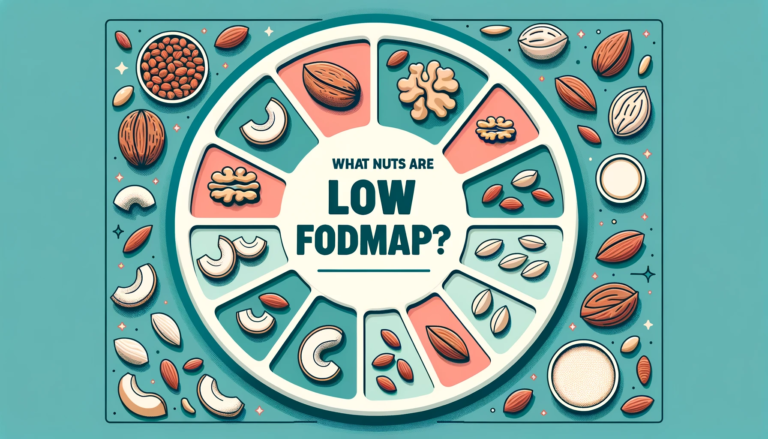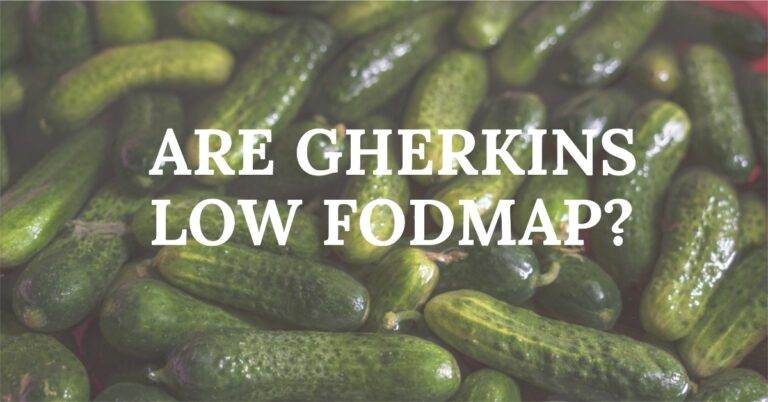Is Turmeric FODMAP Friendly? – Navigating Herbs and Spices as an IBS Sufferer

A warm hello to fellow explorers of the gluten-free and FODMAP territory! Is turmeric FODMAP friendly? You bet!
Turmeric is a great ally in my kitchen, offering a splash of color and a burst of health benefits while fine-tuning my diet for IBS management.
Stick around; there’s so much more to discover about this vibrant yellow spice.
Key Takeaways
- Turmeric is generally considered low FODMAP and, for some, can help manage IBS symptoms [1].
- Incorporating turmeric into your meals can enhance flavor and color vibrantly.
- Consult with a healthcare professional before making any changes to your diet.
- Spice up your low FODMAP dishes with a pinch of turmeric, but moderation is key.
- Turmeric contains curcumin, which boasts anti-inflammatory and antioxidant properties.
All About Turmeric: The Vibrant Yellow Spice

Turmeric, the vibrant yellow spice commonly used in Southeast Asian cuisines, has gained popularity in recent years, especially among individuals following a low FODMAP diet. It’s known for its powerful anti-inflammatory and antioxidant properties.
But when I first received my celiac and IBS diagnosis in 2021, I have to admit I was a little skeptical. Let me share some insights on why turmeric quickly became my go-to spice.
In the midst of adapting to my new dietary restrictions, I found that turmeric was a friendly ingredient to include. This spice not only added a vibrant hue to my dishes but also brought a subtle warmth and earthiness that transformed my meals.
Apart from being a powerful antioxidant, turmeric contains curcumin, which is noted to have anti-inflammatory effects that can help reduce symptoms of irritable bowel syndrome (IBS).
Using herbs and spices like turmeric in cooking became my little joy, an adventure in the kitchen, making the low FODMAP diet not just bearable, but enjoyable. I learned that a sprinkle of turmeric was a great way to add flavor without straying from my diet.
However, it’s always best to consult with a healthcare professional before incorporating new elements into your diet, especially when dealing with gastrointestinal issues.
| Benefits of Including Turmeric | Usage Ideas |
|---|---|
| Anti-inflammatory properties | Add it to soups |
| Rich in antioxidants | Sprinkle on roasted vegetables |
| May help reduce symptoms of IBS | Use in smoothies for a health boost |
| Vibrant color enhancement in dishes | Include in marinades for meats |
In my quest for a more symptom-free life, I found that turmeric was a great ally. It’s not just a spice; it’s a natural food that can complement the low FODMAP diet wonderfully.
A little goes a long way; therefore, incorporating small amounts into your low FODMAP dishes can be both beneficial and delightful.
With its warm, earthy flavors, turmeric became a frequent guest in my culinary experiments. From sprinkling some on my morning eggs to incorporating it into soups and stews, it brought joy and comfort to my kitchen. And let’s not forget the lovely golden hue it lends to any dish!
As someone who has been there, I understand the concerns you might have. Despite the health benefits of turmeric, I always advise my readers to work with a healthcare professional to determine the appropriate amount based on your specific needs.
Yes, turmeric is generally considered safe, but every individual is unique, and what works for one might not work for another.
When you decide to give turmeric a try, consider starting with small serving sizes to observe how your body reacts.
And remember, it’s not just about following a low FODMAP diet, but finding what truly resonates with your body. It’s a continuous process of learning and adapting, something I have embraced fully in my life post-diagnosis.
I encourage you to explore and experiment with turmeric in your low-FODMAP meals.
It has not only been a great way to add flavor to my dishes but also a wonderful addition to my health regimen.
Be bold, be creative, and let the golden spice bring a little sunshine to your plate!
Curcumin – The Powerful Component in Turmeric
It’s time to focus on curcumin, the superstar component found in turmeric. You might be wondering why this ingredient has been making waves in the health community.
Well, let me share how this powerful substance has personally impacted my life and how it can possibly benefit yours too.
Turmeric’s Role in Soothing IBS Symptoms
When I first heard about the benefits of turmeric for IBS, it sounded like one of those miraculous superfoods. After all, living with IBS isn’t a walk in the park.
Between managing my celiac disease and the unpredictable bouts of IBS, finding genuine relief is like finding a needle in a haystack.
Why Turmeric Works for IBS
Turmeric is lauded for its anti-inflammatory and antioxidant properties. Curcumin, the vibrant compound in turmeric, is responsible for many of the health benefits.
Some studies suggest that curcumin can help reduce inflammation in the body, and it’s this very property that can offer solace to those struggling with IBS symptoms.
The anti-inflammatory nature of curcumin can alleviate symptoms like bloating, abdominal pain, and other digestive disorders.
However, it’s always best to sprinkle some turmeric into your diet and observe the changes. After all, everyone’s body is different.
Back when my symptoms were particularly unruly, I found that including turmeric in my low FODMAP dishes gave me that gentle relief I was longing for. Whether I added it to soups, stews, or stir-fries, this golden spice worked its magic.
And while turmeric contains curcumin that helps with inflammation, it’s essential to remember that portion sizes matter.
For some people, too much turmeric might cause discomfort, especially if you’re still following a low FODMAP regimen. Not sure where to start? Check out my tips on IBS self-care.
Other Low FODMAP Spices for the Win
Turmeric isn’t the only spice in town. Cumin, coriander, and paprika are also safe bets for anyone navigating a low FODMAP diet.
Using herbs and spices, especially those low in FODMAPs, is a fantastic way to infuse flavor without causing any gastrointestinal distress.
When I was first adapting to this diet, I found that expanding my spice rack not only made my meals more delicious but also helped me manage my symptoms.
If you’re considering trying out more spices and unsure about their FODMAP content, it’s crucial to do a bit of homework.
While turmeric is generally safe for most, others like garlic powder can wreak havoc if you have IBS.
Remember, finding the right balance and serving size is key. For more insights, this article on IBS and onions might shed some light on tricky foods.
Incorporating turmeric and other low FODMAP spices into my daily meals has been a revelation. It’s not just about managing symptoms but also about relishing the foods that do me good.
Is Turmeric Low FODMAP? – Final Thoughts
Navigating life with IBS and celiac disease nudged me to explore the magnificent world of spices, including the golden wonders of turmeric.
Whether turmeric or its zesty cousin ginger, incorporating these into low FODMAP meals has been nothing short of transformative.
However, tread carefully and balance use; turmeric in moderation to avoid turning a low FODMAP food into a high FODMAP menace.
Remember, a sprinkle here and there can potentially revamp your culinary experience, offering not just flavor but gentle care for your gut too.
So, go ahead, spice up your FODMAP food adventure with confidence and gusto!
Also Read
Disclaimer: This content is based on my personal experience as an individual diagnosed with celiac disease and IBS (Irritable Bowel Syndrome) who follows a strict gluten-free diet. This does not constitute medical advice. Please consult a medical professional, nutritionist, or qualified dietitian for personalized, professional advice.






